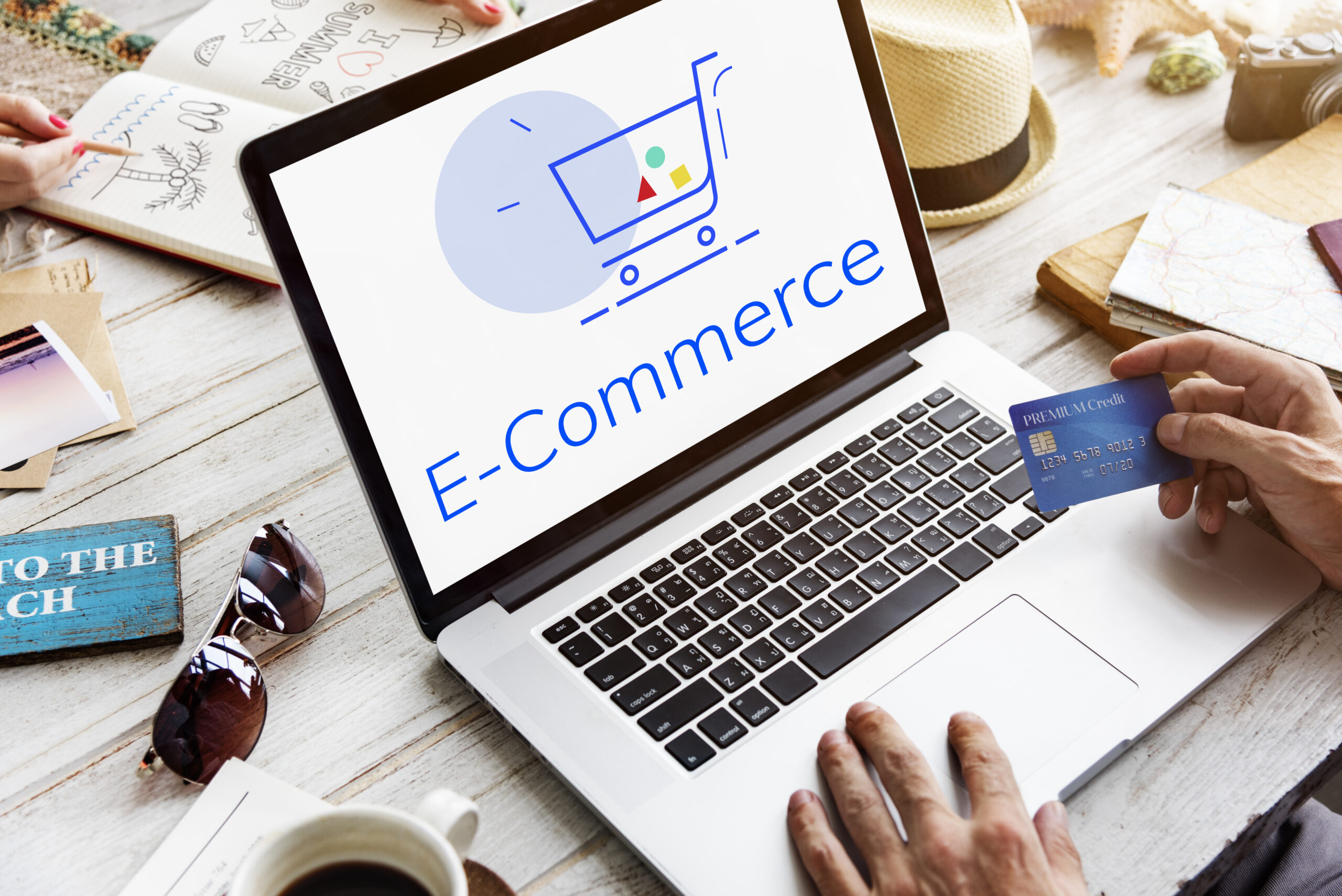In businesses, the emergence of e-commerce has redefined the way commerce is conducted. E-commerce, or Electronic commerce, involves buying and selling goods and services through the Internet. With its widespread reach and transformative capabilities, it has become a preferred avenue for entrepreneurs to establish their businesses.
So, what are the advantages of starting an E-commerce business? In this article, we will discuss some of the key advantages of starting an E-commerce business.
Contents
- 1 What is E-commerce?
- 2 Advantages of Starting an E-commerce Business
- 2.1 1. Global Reach and Market Expansion
- 2.2 2. Reduced Overhead Costs
- 2.3 3. Scalability and Flexibility
- 2.4 4. Lower Cost in Inventory Management
- 2.5 5. 24/7 Accessibility and Convenience
- 2.6 6. Environmental Sustainability
- 2.7 7. Reduced Barrier to Entry
- 2.8 8. Direct Interaction with Customers
- 2.9 9. Personalized Shopping Experience
- 2.10 10. Wider Product Visibility and Marketing Opportunities
- 3 Frequently Asked Questions (FAQs)
What is E-commerce?
E-commerce or Electronic commerce, involves conducting business transactions electronically, without the need for physical presence. E-commerce encompasses a wide range of activities, including online shopping, electronic payments, online auction, and Internet banking. It has transformed the way businesses operate and how consumers shop by providing a convenient and accessible platform for conducting commercial activities online.
Advantages of Starting an E-commerce Business
1. Global Reach and Market Expansion
One of the most significant advantages of e-commerce is the ability to transcend geographical boundaries. Traditional brick-and-mortar businesses are often limited to their local markets, but e-commerce offers a global platform. Entrepreneurs can tap into an international customer base, reaching consumers from various corners of the world.
This global reach enables businesses to expand their market presence and connect with diverse audiences without the constraints of physical locations.
2. Reduced Overhead Costs
Compared to setting up and maintaining a physical store, launching an e-commerce business comes with considerably lower overhead costs. There’s no need for renting or owning a storefront, investing in elaborate interior designs, or employing a large number of staff.
E-commerce businesses can be managed with a lean team, saving on labor expenses. Additionally, digital platforms streamline inventory management, reducing warehousing and storage costs.
3. Scalability and Flexibility
E-commerce businesses possess inherent scalability, which means they can easily accommodate growth. As demand increases, entrepreneurs can adjust their operations, expand product offerings, and integrate additional features without the challenges associated with physical expansion. This flexibility allows businesses to adapt swiftly to market trends and consumer demands, staying ahead of the competition.
4. Lower Cost in Inventory Management
Traditional businesses often struggle with inventory management, facing the dilemma of overstocking or understocking products. E-commerce businesses can take advantage of digital tools that provide real-time insights into inventory levels, helping entrepreneurs optimize stock and reduce wastage. This not only saves costs but also ensures that products are available when customers want.
5. 24/7 Accessibility and Convenience
E-commerce businesses operate around the clock, providing customers with unparalleled accessibility and convenience. Shoppers can browse and purchase products at any time, eliminating the restrictions of traditional store operating hours. This convenience factor resonates with busy individuals and those from different time zones. For entrepreneurs, this means the potential for continuous sales and revenue generation, even while they sleep.
6. Environmental Sustainability
E-commerce businesses inherently have a smaller carbon footprint compared to brick-and-mortar establishments. The elimination of physical storefronts and the associated energy consumption contribute to reduced environmental impact. Moreover, the shift towards digital receipts, online invoices, and paperless transactions aligns with sustainable practices, appealing to environmentally conscious consumers.
7. Reduced Barrier to Entry
Starting an e-commerce business is relatively easier and requires less capital compared to traditional ventures. With platforms like Shopify, WooCommerce, and Amazon Marketplace, entrepreneurs can set up online stores without extensive technical knowledge. This reduced barrier to entry encourages more individuals to explore their entrepreneurial ambitions, leading to a diverse range of products and services available to consumers.
8. Direct Interaction with Customers
E-commerce platforms offer opportunities for direct interaction between businesses and customers. Customer reviews, ratings, and feedback contribute to transparency and build trust. Entrepreneurs can promptly respond to inquiries, resolve issues, and gather insights for continuous improvement. This direct engagement fosters a sense of community and loyalty among customers, driving repeat purchases.
9. Personalized Shopping Experience
The digital nature of e-commerce allows businesses to gather and analyze customer data, enabling them to offer personalized shopping experiences. Through the use of cookies and browsing history, businesses can recommend products that align with individual preferences. This not only enhances customer satisfaction but also boosts the likelihood of upselling and cross-selling, contributing to increased revenue.
10. Wider Product Visibility and Marketing Opportunities
E-commerce businesses benefit from a variety of digital marketing tools that enhance product visibility. Search engine optimization (SEO), social media advertising, and email marketing strategies can be employed to attract and engage potential customers. Unlike physical stores that rely heavily on foot traffic, e-commerce businesses can leverage data-driven marketing techniques to target specific demographics and tailor promotions effectively.
In conclusion, the advantages of starting an e-commerce business are numerous and impactful. From global market reach and cost efficiencies to personalized experience and environmental sustainability, e-commerce has revolutionized the way business is conducted. Entrepreneurs who harness the power of digital platforms can position themselves for success in the marketplace, where innovation reigns supreme.
Frequently Asked Questions (FAQs)
1. How can I reach customers globally with an e-commerce business?
E-commerce allows you to reach customers worldwide through online marketing, international shipping options, and the ability to operate 24/7 to accommodate different time zones.
2. What are the cost advantages of e-commerce compared to traditional retail?
E-commerce typically has lower overhead costs, as you don’t need physical storefronts, extensive inventory, or as many staff members.
3. Are there any disadvantages or challenges to starting an e-commerce business?
Challenges may include intense competition, the need for effective online marketing, and staying update with changing technology and customer preferences.
4. How can I ensure the security of customer data in an e-commerce business?
Utilize secure payment gateways, implement encryption for customer data, and stay compliant with data protection regulations (e.g., GDPR) to ensure data security.
5. What e-commerce platforms are suitable for beginners?
Some beginner-friendly e-commerce platforms include Shopify, WooCommerce (for WordPress users), and BigCommerce, which offer user-friendly interfaces and support.
6. What marketing strategies work well for e-commerce businesses?
Effective digital marketing strategies include search engine optimization (SEO), social media marketing, email marketing, and pay-per-click advertising to drive traffic and sales.


